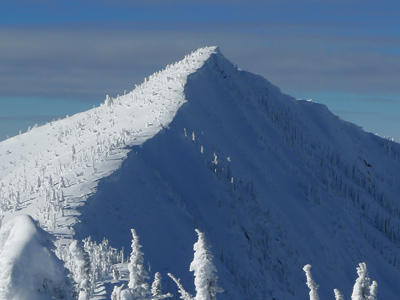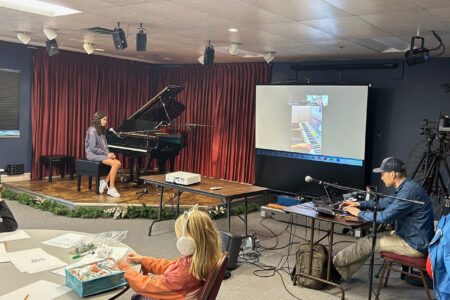TALES AND LEGENDS OF THE MOUNTAIN KINGDOM: Richard Plewman and the mountain we named after him
Naming a mountain is serious business – you don’t just name a mountain anything these days. Did you know, for example, that we have a Mount Jeldness in our midst, rising up out of the Sheep Creek Valley? Did you know that it was once named Mount Nigger? Good thing someone came to their senses in 1967 and changed that one. We also have a Mount Kirkup, named after one of Rossland’s legendary policemen, which I have previously written about.
Mount Roberts was previously called Mount Spokane. Mount Plewman, one of the summits on the Mountain Kingdom’s ultimate hiking and biking trail, the Seven Summits, was named after a guy who was a prominent citizen of Rossland back in her heyday. Plewman Way, which connects Kirkup Avenue to Washington Street in upper Rossland, also takes its name from the same man, who came to town back during the boom years to make his mark on the world.
Richard Elgood Plewman was born in Ireland, though I don’t know the year. He was one of eleven children, seven of which were boys. He was educated in England and became, from what I can gather from Harold Kingsmill’s flamboyantly verbose description of the man in his booklet, “A First History of Rossland…etc. etc.”, Richard started out in life as a leather salesman for a large British leather manufacturing company. In fact, it seems as if he took after his father in this calling, as the pater familias of this large clan apparently did much the same thing, thus allowing for his son to be educated in England in the field of business. After travelling around the United Kingdom for 20 years as a salesman, he started his own firm and continued to travel. In 1887, though, he emigrated to Canada, winding up in Toronto. A year later, his family would follow him.
I don’t know much about the history of leather sales and manufacturing, but Richard must have had some prowess at what he did as he managed to make some friends in high places. Most notably, he had friends in the Victorian Consolidated Hydraulic Mining Company – and presto changeo – Richard was all of a sudden a mining broker. This transformation let him to BC’s Cariboo region in 1895, and after hearing about mining opportunities in the Kootenays, he landed in Rossland in 1897, where he quickly started up his own business.
After a mere few months, he became the secretary of the La Regina Mining Company, was the official broker for the Cumberland Gold Mining Company, and was nominated for the receivership of the O.K. Mining Company by the Old National Bank of Spokane. According to Kingsmill’s effusive sketch of Richard, he was “one of Rossland’s most prominent and most trustworthy brokers and dealers in mining stocks and mining properties.” And indeed, in the 1898 voters’ list, his profession was listed as “mining broker”.
This trustworthiness translated to other aspects of life in Rossland, not just Richard’s business successes, because he was one of Rossland’s first judges, too. Ron Shearer’s essay, “Fragments: Essays on Neglected Aspects of Rossland’s History”, has some information on his role as magistrate. Before we got an official judge presiding over the court system in the Mountain Kingdom, Richard was appointed to the position of police court magistrate, and in 1908 he was appointed as Rossland’s magistrate in the law court. Most significantly, Richard was responsible for overseeing Rossland’s red light district. After a previous magistrate refused to enforce the city hall policy of charging the Mountain Kindgom’s “working girls” a monthly fine so they didn’t have to show up in court all the time, Richard Plewman did enforce it, making everyone happier and making things more efficient and putting less stress on the local justice system.
But it wasn’t to last forever; in 1919, Plewman wound up overseeing the closing of the brothels and the mass exodus of Rossland’s prostitutes due to threats from the province that if Rossland didn’t clean up its red light district, its police force would be replaced with a provincial one. More on that here.
But Richard’s community involvement went even further. He was an avid snowshoer and even did some skiing, and he headed the skiing sub-committee of the Rossland Winter Carnival organizational committee. He was behind the rather controversial decision of the ski committee to, in 1913, make the ski jumping competitions “for amateurs only.” Previously, professionals could compete in the event, but after deliberating, the skiing sub-committee decided that wasn’t on anymore, and Richard Plewman said, “experience has taught that ski-jumping is a costly business and more unsatisfactory than expensive. Accordingly, all idea of inducing the experts to compete at the Carnival, as in former years, has been abandoned.”
Why there isn’t more written about Richard Plewman I can’t tell. To have a mountain named after him speaks to his importance in the town’s history, yet sources of information are scarce. One interesting tidbit that I did come across in my research was that Richard’s much younger brother, William, was a very famous WWI journalist. He had a daily column in the Toronto Daily Star that was read internationally, and, even though he lacked any military training, he provided analysis, hand drawn maps, and predictions about the war – predictions that often came true. He is also famous for covering the Winnipeg General Strike. He eventually became a member of Toronto’s city council and authored three books on WWI. Another brother, Edgar, spent 32 years in China as a missionary, and yet another brother, Charles, founded a popular boys camp in 1932 that runs to this day. It seems like a family of high achievers, though of course I could find nothing on Plewman’s sisters.
Mount Plewman itself hovers over Nancy Greene Lake, 2 kilometres from Old Glory along the Seven Summits trail, and has an elevation of 2241 metres or 7352 feet. Not only is it popular with mountain bikers and hikers, it’s a well-known location for back country skiing as well.
Sources:
http://cjms.fims.uwo.ca/issues/02-01/dupuis.pdf
Harold Kingsmill’s First History of Rossland etc.
Ron Shearer’s “Fragments: Essays on Neglected Aspects of Rossland’s History”
http://bivouac.com/MtnPg.asp?MtnId=6140
ADDENDUM TO THE ORIGINAL ARTICLE: Thanks to Ron Shearer, I have recently discovered that the Plewman in Harold Kingsmill’s sketch in his work “A First History of Rossland…etc. etc…” was actually the father of Plewman the judge. It appears that there were two Plewmans who inhabited Rossland at one time. Mr. Shearer has been kind enough to offer me some additional information on Plewman the younger, and once I receive it, I’ll write a correction to set the record straight. A. Kenning.
























